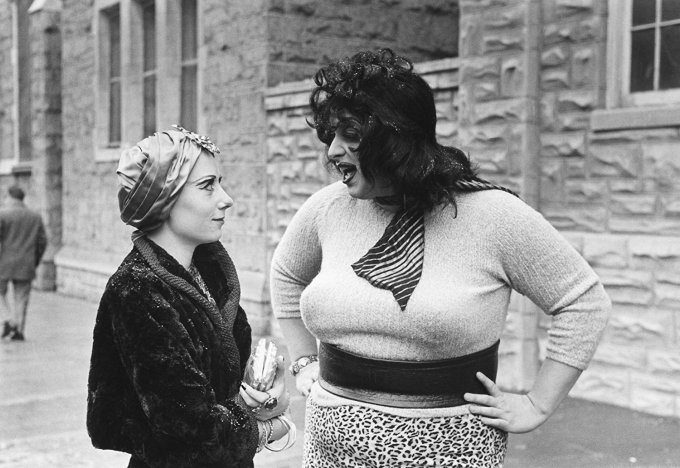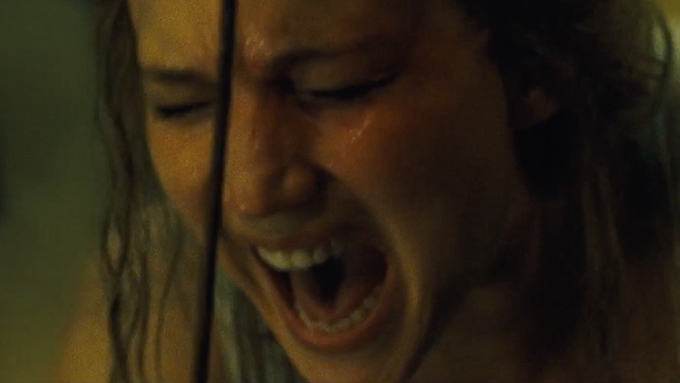
A classic Dreamland production that somehow had managed to pass me by, Multiple Maniacs may just be Waters’ true masterpiece. Unlike Pink Flamingos or Female Trouble, where Divine’s characters are driven by perhaps overly-cartoonish grandiose ambitions of infamy and depravity, Maniacs‘ incarnation of Lady Divine has her pettiness and hyperbole balance one another out to the point that her motivations seem typically, dare I say, reasonable?
Early enough in Waters’ career for his influences still to shine through, the spectator is able – encouraged, even, to pick up on references to Jack Smith, Buñuel, Pasolini; the cinematography’s roaming imperfections, in relation to sporadic yet vital use of post-production overhead narration allows the aesthetic to range from genuine vérité to a semi-neorealist Flaming Creatures. Consequently perhaps, although Multiple Maniacs clearly intends to shock, disturb and disgust, its portrayal of sexuality borders at times on the legitimately erotic.
Coming closest therefore to addressing the Dreamlanders’ actual desires, it is unsurprising that Maniacs effectively represents their actual principles, too, before they become refracted into different characters in later films. At the heart of Multiple Maniacs‘ philosophy is the celebration of family, however alternative it may be, and, accordingly, that the greatest sin of all is betrayal. Pink Flamingos addresses the same issues of protection of an alternative family structure, but the threatening forces are external tribalist animosity. Polyester recognises the internal threat of betrayal, but within a bourgeois heteronormative nuclear family. Multiple Maniacs‘ power stems in many ways from its reflection on the need for unity within queer social relations, to such an extent that its prolonged jump-cut sequence between Divine and Mink’s “rosary job” and Jesus, first feeding the “5000,” and then being given the kiss of death by Judas, and his inevitable crucifixion, cannot be interpreted purely as simple sacrilege. Instead, this is Waters himself engaging with the parabolic.
Considering the motley crew of reprobates involved in this and practically all productions of Waters’, Multiple Maniacs is the perfect love letter to what was to come.
⭐⭐⭐⭐1/2

